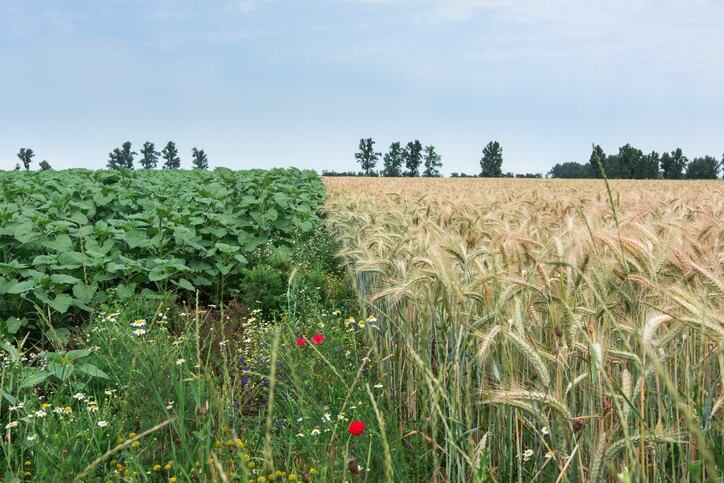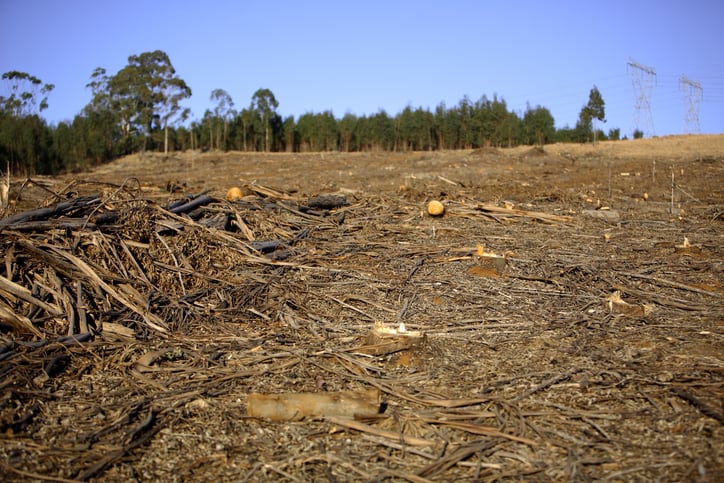Agricultural areas cover 40% of the EU’s landmass – that’s a total of 174m hectares. How this land is cultivated has significant implications for issues like biodiversity loss. The Intergovernmental Science-Policy Platform on Biodiversity and Ecosystem Services (IPBES) identified land-use intensification as the number one cause of biodiversity loss and associated risks to ecosystem services and human wellbeing.
The European Union has made a number of commitments to develop sustainable agricultural production, including a partnership with the Food and Agriculture Organization of the United Nations to address climate change and improve food systems. When the partnership was announced last year, the organisations said this can be achieved through a better utilisation of natural resources and investment in value chains.
“We remain acutely aware that food security and sustainable agriculture remain pressing challenges,” European Commissioner for International Cooperation and Development, Neven Mimica, said at the time. The development of sustainable agriculture is ‘high on the EU policy agenda’, Mimica insisted.
However, researchers led by the German Centre for Integrative Biodiversity Research (iDiv), the Helmholtz Centre for Environmental Research (UFZ) and the University of Göttingen believe that this is not reflected in the EU’s CAP reform proposal. A paper published in the journal Science stressed that – representing approximately 40% of the total budget – CAP is one of the ‘most important’ policy areas for delivering on its international commitments.
"The proposal made by the European Commission for the CAP post-2020, published in June 2018, demonstrates very little of this intention," said the research team, headed up by Dr Guy Pe'er of iDiv, UFZ and Dr Sebastian Lakner from the University of Göttingen.
The researchers analysed the proposal for the CAP post-2020 with a focus on three questions: Is the reform proposal compatible with the UN's Sustainable Development Goals? Does it reflect public debate on agriculture? And does it offer a clear improvement compared to the current CAP?
The analysis was based on a ‘comprehensive’ review of the literature with about 450 publications, addressing issues such as effectiveness, efficiency and relevance of the CAP.
The scientists' conclusion: The proposed CAP represents a clear step backwards compared with the current one.
Policy fails to deliver EU promises
"Taking sustainability and the SDGs seriously requires a deep reflection on agricultural policy, its budgets and instruments, and developing good indicators for measuring success," said Dr Pe'er.
"Beyond words, we found little of that," the ecologist concluded.
According to the researchers, the CAP has the potential to support at least nine of the seventeen SDGs, but currently it only contributes to achieving two of them.
The researchers also criticise the EU for maintaining some of the CAP instruments that have been proven to be ‘inefficient, harmful to the environment and socially unfair’.
An example of this is the direct payments under the Pillar 1 of the CAP. The researchers stressed around €40bn - about 70% of the CAP budget - is paid to farmers on the basis of cultivation. The researchers noted this system means 1.8% of recipients get 32% of the money.
"These compensatory payments, provisionally introduced in 1992 as an interim solution, are lacking a sound scientific justification,” insisted Dr Lanker, an agricultural economist at the University of Göttingen.
Direct Payments contribute ‘very little’ to environmental or social goals, the researchers stress.
Political pressure inhibits reform
There is a strong sentiment that CAP should become a better tool to promote sustainable agriculture practices. According to an EU survey, 92% of the citizens and 64% of farmers say that the CAP should improve its performance on environmental and climate protection.
The EC has responded to criticisms by developing a ‘green architecture’. This includes an expansion of the Good Environmental Agricultural Criteria and new voluntary measures called 'eco-schemes'. In addition, 40% of the CAP will be labelled as 'climate-friendly'.
“Three of the nine future CAP objectives aim to enhance and improve our environmental and climate change action,” the Commission said in January of this year.
However, the ‘greening’ of direct payments was ‘watered down by political pressure’ during the last reform process, the researchers asserted. This means the outcome was ‘largely ineffective’.
The ‘climate friendly’ calculation ‘remains questionable’ and the Commission offers no specific instruments to address climate change, even though agricultural greenhouse gas emissions are rising, the paper stressed.
Moreover, Pillar 2 of the CAP, which deals with rural development, offers ‘much better tools’ to address biodiversity loss and climate change – but the Commission has suggested cutting Pillar 2’s budget by 28%. The researchers argue that this presents a risk to both the environment and rural communities.
The researchers believe the key reason for the environmental shortfalls lies in an ‘unbalanced reform process’ which allows ‘powerful lobby organisations’ far-reaching opportunities to promote own interests. It also excludes important players from science and society, they suggested.
"The EU obviously lacks the will to meet public demand for sustainable agriculture and to implement the global environmental and development goals it had a share in adopting," said Dr Pe'er.
"Lobby interests have clearly outweighed both ample evidence and public interests."
‘Terminate direct payments’
So, what is the solution? The researchers maintain the termination of direct payments would improve the CAP. In the shorter term, Pillar 2 should be ‘strengthened’ and measures that have been proven to be beneficial for biodiversity and sustainability should be supported, they argued.
Pe'er and Lakner see the newly-elected European Parliament as an opportunity to reshape the reform process to include all relevant stakeholders and take scientific findings ‘seriously’.
"There is sufficient scientific evidence on what works and what doesn't, especially with respect to the environment," said Dr Pe'er.
"It should be in the core interest of the EU Commission to use tax payers' money more efficiently to support societal objectives such as the maintenance of biodiversity or in general sustainable agriculture," added Dr Lakner.
The final round of CAP negotiations between the European Commission, the European Council and the European Parliament is expected to start this autumn.
Source
'A greener path for the EU Common Agricultural Policy'
Science
DOI: 10.1126/science.aax3146
Authors: Pe'er, G., Zinngrebe, Y., Moreira, F., Sirami, C., Schindler, S., Müller, R., Bontzorlos, V., Clough, D., Bezák, P., Bonn, A., Hansjürgens, B., Lomba, A., Möckel, S., Passoni, G., Schleyer, C., Schmidt, J. & Lakner, S.




